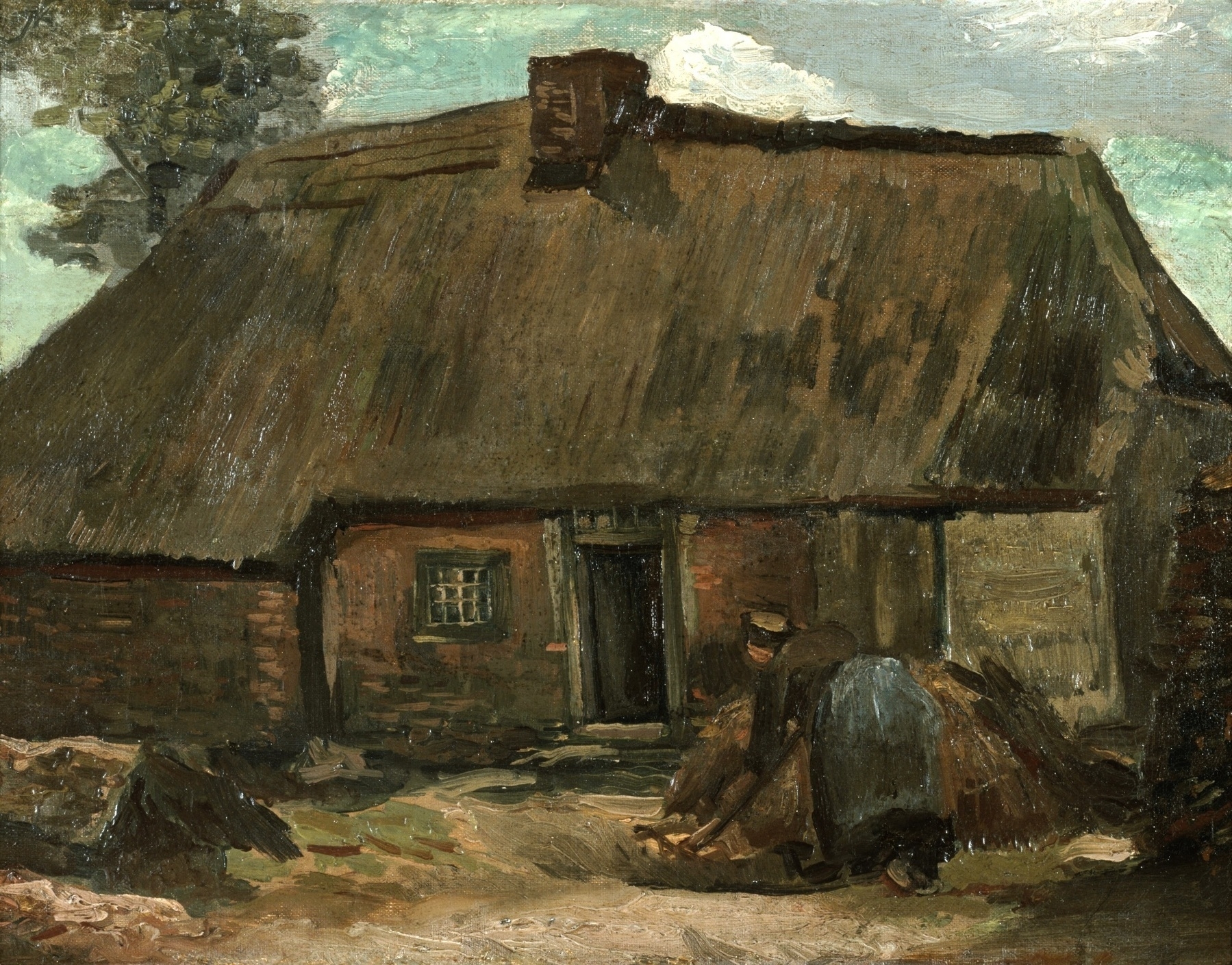Cottage with Peasant Woman Digging (1885) by Vincent van Gogh:

Cottage with Peasant Woman Digging (1885) by Vincent van Gogh:

The cottage (1885) by Vincent van Gogh:

Finished Heavyweights tonight (though it was a slog)…glad to see I’m not alone in discerning a connection between Ben Stiller’s characters in Heavyweights and Dodgeball.
Joe Biden is setting old people back so much…
Matthew Crawford, writing in The Hedgehog Review on how LLMs (i.e., large language models such as ChatGPT) are just the latest iteration of a process of “self-erasure,” in which we decline the task of being human and opt instead to be assimilated to larger and larger impersonal forces.
LLMs are a particularly interesting example of this trend, though, because our use of language is a distinctly human enterprise. It is through articulating that we understand the significance of things, events, and even ourselves. As Crawford notes, “we ‘self-articulate’ as part of the lifelong process of bringing ourselves more fully into view‚ how I stand, the particular shape that various universal goods have taken in my own biography, and in my aspirations.” Listen to how he puts it,
LLMs are built on enormous data sets—essentially, all language that is machine-scrapable from the Internet. They are tasked with answering the question, “given the previous string of words, what word is most likely to occur next?” They thus represent what the philosopher Talbot Brewer recently referred to as “the statistical center of gravity” of all language (and I am following Brewer’s lead in viewing LLMs through the lens of Taylor’s account of language). Or rather, all language that is on the Internet. This includes the great literature of the past, of course. But it includes a whole lot more of the present: marketing-speak, what passes for journalism, the blather produced by all who suffer from PowerPoint brain. But put aside the impoverished quality of the language that these LLMs are being trained on. If we accept that the challenge of articulating life in the first person, as it unfolds, is central to human beings, then to allow an AI to do this on our behalf suggests self-erasure of the human.
Some churches hold to orthodox doctrines but with imbalances and a lack of proper emphasis. Many ministries spend more time defending the faith than propagating it. Or they may give an inordinate amount of energy and attention to matters such as prophecy or spiritual gifts or creation and evolution. A church may become enamored with the mechanics of ministry and church organization. There are innumerable reasons that critical doctrines of grace and justification and conversion, though strongly held, are kept “on the shelf.” They are not preached and communicated in such a way that connects to people’s lives. People see the doctrines—yet they do not see them. It is possible to get an “A” grade on a doctrinal test and describe accurately the doctrines of our salvation, yet be blind to their true implications and power. In this sense, there are plenty of orthodox churches in which the gospel must be rediscovered and then brought home and applied to people’s hearts. When this happens, nominal Christians get converted, lethargic and weak Christians become empowered, and nonbelievers are attracted to the newly beautified Christian congregation.

The St John Ophthalmic Hospital, Jerusalem (1927) by David Bomberg:

Mount Zion and the Church of the Dormition, Jerusalem (1923) by David Bomberg:

Jerusalem, City and Mount of Ascension (1925) by David Bomberg:

Jerusalem (1924 or 1925) by David Bomberg:

San Justo, Toledo, Spain (1929) by David Bomberg:

Ronda, Summer (1954) by David Bomberg:

Evening in the City of London (1944) by David Bomberg:
